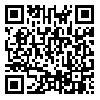
Journal of Modern Research Physics

Volume 6, Issue 1 (9-2021)
JMRPh 2021, 6(1): 0-0 |
Back to browse issues page
Download citation:
BibTeX | RIS | EndNote | Medlars | ProCite | Reference Manager | RefWorks
Send citation to:



BibTeX | RIS | EndNote | Medlars | ProCite | Reference Manager | RefWorks
Send citation to:
Asoudeh M, Khakbiz P. Study of the effect of bit-flip channel on quantum secret sharing. JMRPh 2021; 6 (1)
URL: http://jmrph.khu.ac.ir/article-1-191-en.html
URL: http://jmrph.khu.ac.ir/article-1-191-en.html
Islamic Azad University,Tehran North Branch
Abstract: (1405 Views)
Modern Communication will soon undergo fundamental changes by using quantum resources like superposition and entanglement. Among the most important quantum communication protocols is the quantum key distribution and quantum secret sharing. Quantum secret sharing is a protocol in which a secret key is shared between a group of players in a secure way. Most of the secret sharing protocols use multi-partite entangled states which are difficult to create and maintain. To remove the necessity for entangled states, sequential Quantum Secret Sharing (QSS) has been developed in which all players act on a single state and pass it sequentially to each other. At the end by public and partial announcement of parameters of their action, they can infer a shared and secure secret key among themselves. Since in the real world, any communication protocol is subject to noise, it is important to study the reliability of this protocol under the most common types of noise.In this work we prove that the protocol is robust against one of the most common sources of noise, namely the bit-flip noise.
Type of Study: Research |
Subject:
Special
Received: 2021/07/20 | Accepted: 2022/04/27 | Published: 2022/08/24 | ePublished: 2022/08/24
Received: 2021/07/20 | Accepted: 2022/04/27 | Published: 2022/08/24 | ePublished: 2022/08/24
Send email to the article author
| Rights and permissions | |
 |
This work is licensed under a Creative Commons Attribution-NonCommercial 4.0 International License. |


